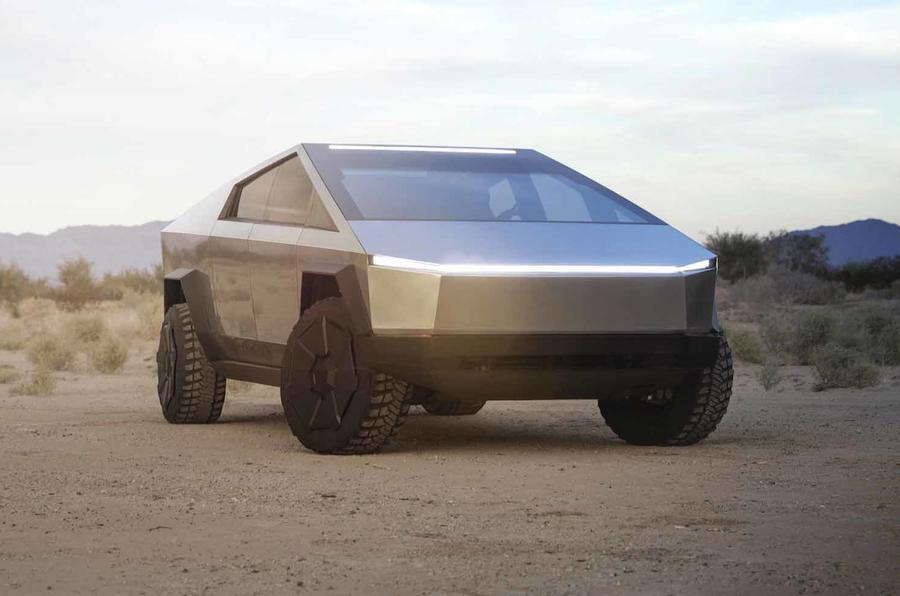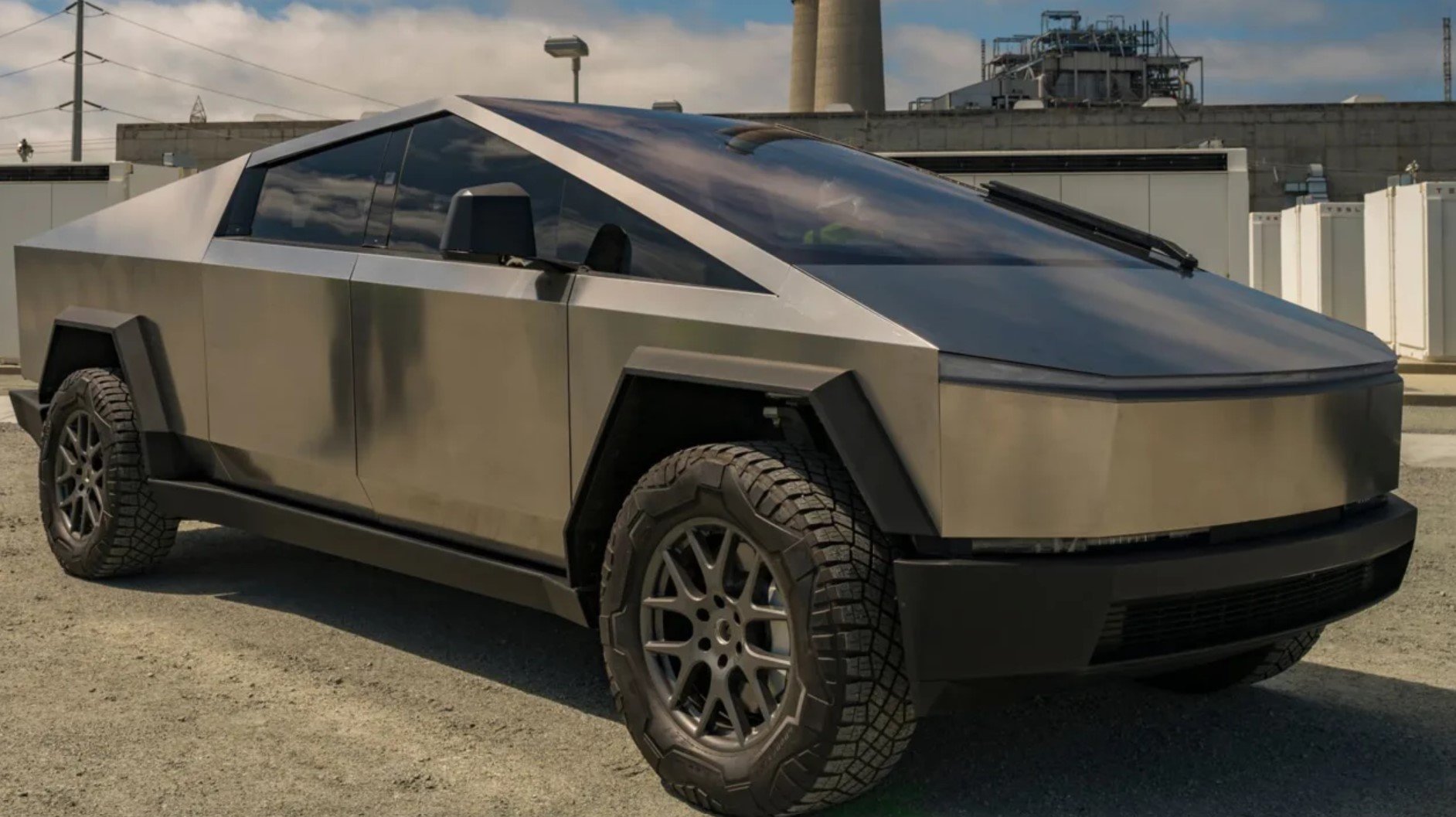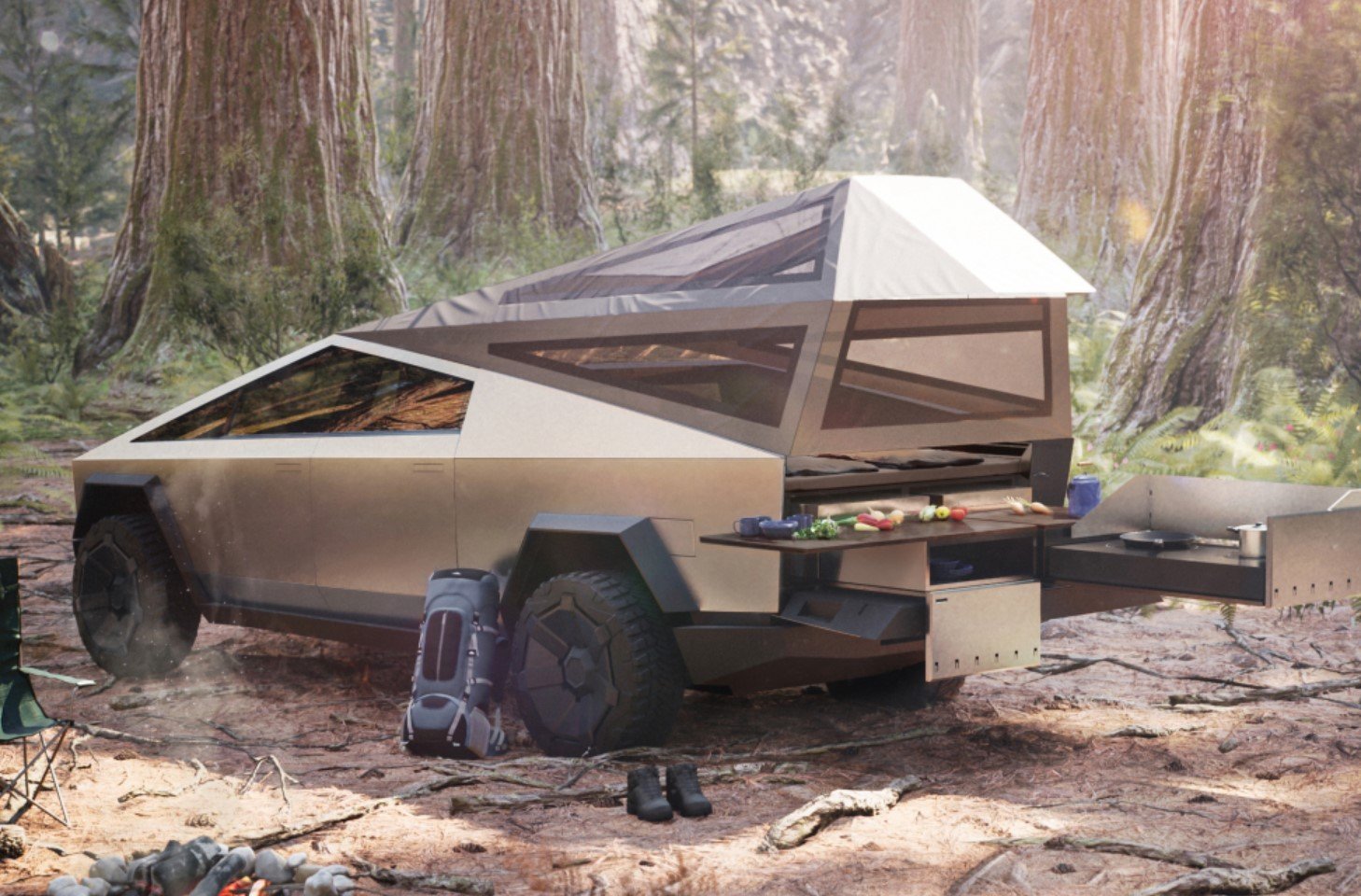Tesla founder Elon Musk says the super-fast 1000kW speed superchargers will be rolled out across its charging network.
The upcoming Tesla Cybertruck SUV will get the same 1MW (1000kW) charging speed as the Tesla Semi, founder Elon Musk has confirmed.
Tesla claims the Semi has the ability to replenish 70 percent of its 1000-volt, 1000kWh battery in just 30 minutes. Although no battery size has been revealed for the Cybertruck, this could mean a full-charge time in just a number of minutes.
The charging speeds, which will be the fastest ever available to the public, will be rolled out across Tesla’s supercharger network in the US next year, Musk said.
The news was revealed at an event to mark the first production versions of the long-delayed Tesla Semi being delivered to PepsiCo.
The HGV, first shown in prototype form in 2017, has a range of around 800km even when fully laden (at 81,000lbs or 36,741kg), Musk confirmed.
A time-lapse video (below) from Tesla of a recent test drive backed up Musk’s claims, who added that the Semi used just 2kWh/mile during the run.
The Semi is also rumoured to be offered with a smaller 600kWh battery for a range of 480km.
The rival Daf CF Electric – a European-style cab-forward lorry – is offered with a 315kWh battery, giving a 220km range (in tractor configuration). It has a gross combined mass (the maximum weight of the HGV and trailer) of 37,000kg.
A tri-motor powertrain – the same as found in the 761kW Tesla Model S Plaid – drives the two rear axles and dispatches the 0-100km/h sprint in 20sec fully laden or 5.0sec without cargo.
Further details on power were not disclosed at the event, but Musk did add that the car had “three times the power of any diesel truck on the road right now”.
“At Tesla we don’t make slow cars,” he said. “This thing has crazy power compared to a diesel truck. When you’re not towing anything, it looks like an elephant moving like a cheetah.
“It’s fast to accelerate, it’s fast to brake. It is really a step change improvement in what it is like to drive a semi truck.”
Tesla originally stated the Semi would use four motors, and a high-performance model – in the mould of the Model S Plaid – isn’t out of the question.
Musk denied that the Semi uses the more energy-dense 4680 cells on Tesla’s recent third-quarter earnings call.
“The Semi doesn’t use the 4680s. We’re making Model Ys; some of the Model Ys coming out of Giga Texas [factory] are 4680,” said Musk, implying that supply of the cells was being diverted to cars.
Inside, a central seat is flanked by two infotainment displays, each displaying a blindspot camera view for its respective side of the HGV. The left also displays diagnostic data such as speed and charge level, while the right also shows navigation.
When the Semi was first shown in prototype form five years ago, slated for a 2019 launch, Tesla said it would be priced between $150,000 and $180,000 (AUD$221,000 and $265,000). However, given the increased cost of vehicle production and supply-chain problems, this cost is likely to have risen significantly.
No costing details were given at the event.
The Semi’s sudden revival after fading into obscurity – much like the Roadster it was shown alongside in 2017 – is widely speculated to be a response to the Inflation Reduction Act. Signed off by US president Joe Biden in August, this contributes tax credits up to $40,000 for electric commercial vehicles weighing more than 14,000lbs (6350kg).
Numerous large companies are known to have placed orders for the truck, including delivery firm UPS and the Canadian division of Walmart.
The first units will go to Pepsi. The soft-drinks giant was given $15.4 million (AUD$22.7m) by the California Air Resources Board to order low-emissions commercial vehicles, including 15 Semis, Bloomberg has reported.
Musk said on the Q3 earnings call that production is planned to scale up to 50,000 units annually by 2024. Company chair Robyn Denholm recently said Tesla may build 100 by the end of this year.
Charlie Martin






